Whatever else The Lobster may be, it is most certainly odd. This is, after all, a movie in which persons who cannot find suitable mates in 45 days are turned into animals. The good news is they get to choose what kind of animal. As one of the few people who was completely underwhelmed by Yorgos Lanthimos’ Dogtooth (2010), I wasn’t as keen on seeing his new film as everyone else seemed to be. And, having seen The Lobster and liked it, I am still not so blown away as to be in a mad rush to reassess Dogtooth or check out his other works. For that matter, I am not sure I’d really like to revisit The Lobster — estimable as it is — any time soon. Or maybe ever.
That is not a criticism, merely a personal reaction. It’s the same one I’ve had to every Lars von Trier movie — at least the ones I’ve liked (if “like” is a term that’s applicable to von Trier). On nearly ever other level, I’d have to call The Lobster a genre-defying (it has been called everything from a comedy to a horror picture) success of fairly constant surprise. The Lobster gets by on giving the viewer as little information as possible. We are never told where this law about people pairing off came from, nor how much of the world it pertains to. The world of the film consists of a hotel, a forest, a road and a place known only as The City. If the rest of the world exists, we never hear about it. Like the characters in the film, we accept this world as real.
Our main character is David (Colin Farrell), a pudgy sad-sack with glasses, an unappealing mustache and a mostly blank expression. He is, however, luckier than most in that he has a name. (The only other character with a name is his brother, who has already been turned into a dog.) Everyone else is identified by a defining characteristic — Short-Sighted Woman, Limping Man, Nosebleed Woman, etc. — or an occupation — Hotel Manager, Hotel Receptionist, Maid. But characteristics seem to define people in the world of this film. They are the key to pairing off, with some people so desperate they fake someone’s defining characteristic as a means to an end. For instance, Limping Man (Ben Whishaw) cuts himself or bangs his head against tables to induce nosebleeds so he can woo Nosebleed Woman (Jessica Barden). It seems absurd, but is it that much more absurd than our own tendency to present ourselves as the person we think someone wants, rather than as the person we are?
David is here because his partner abandoned him and he has the requisite 45 days (the time can be extended by catching runaway loners) to find a new partner among the other guests. His choice of a lobster as the animal to be turned into should he fail is reasoned: “Because lobsters live for over one hundred years, are blue-blooded like aristocrats and stay fertile all their lives. I also like the sea very much.” But, before that can happen, he makes an attempt at a relationship, runs off to the forest, joins the “loners” and meets Short-Sighted Woman (Rachel Weisz, who has been narrating the film) and falls in love. The problem is that the “loners” are as equally opposed to couples as the officials are insistent on them.
Where the film goes from there is something you’ll have to see for yourself. It is characteristic of Lanthimos that much is left unexplained (the film opens with a woman casually shooting a donkey — something we are left to guess the motivations behind). That will please some and alienate others. Every genre The Lobster has been tagged with — comedy, romance, dystopian sci-fi, satire, horror — are not unreasonable, but no one term quite describes this very unusual — and vaguely depressing — work. Rated R for sexual content, including dialogue, and some violence.
Playing at Carolina Cinemark.

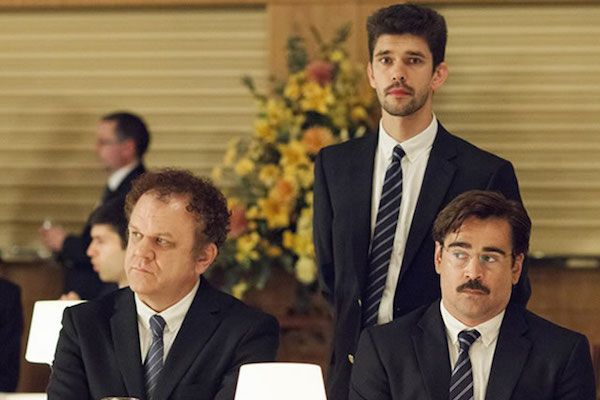
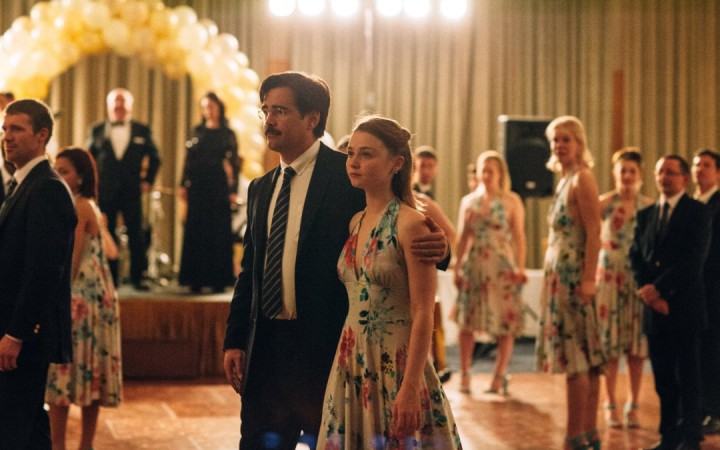

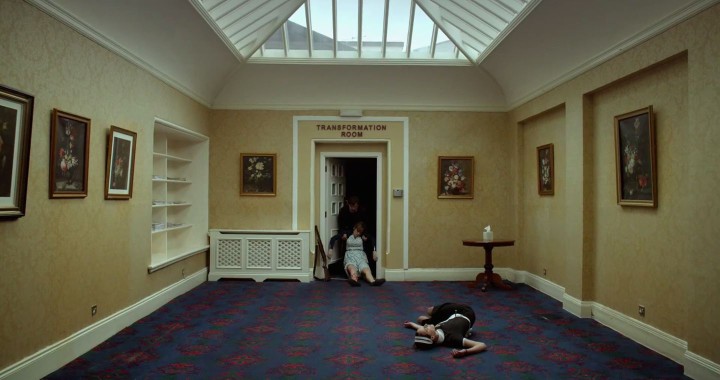
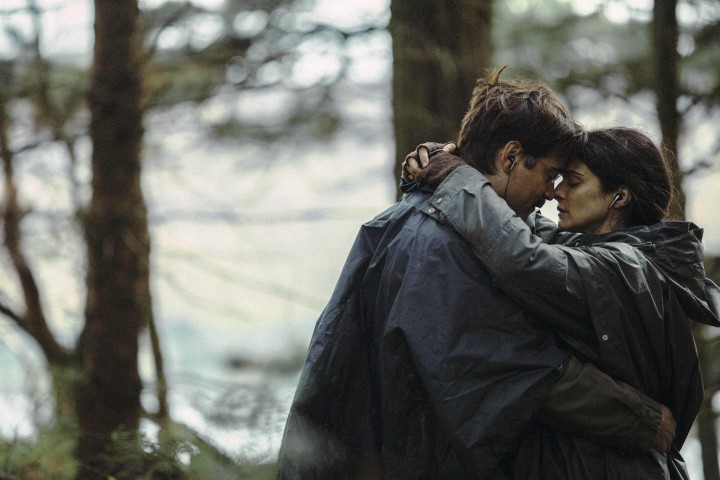
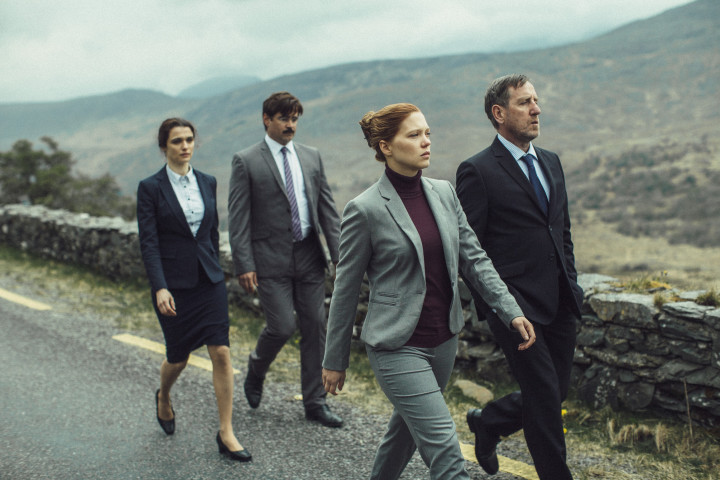
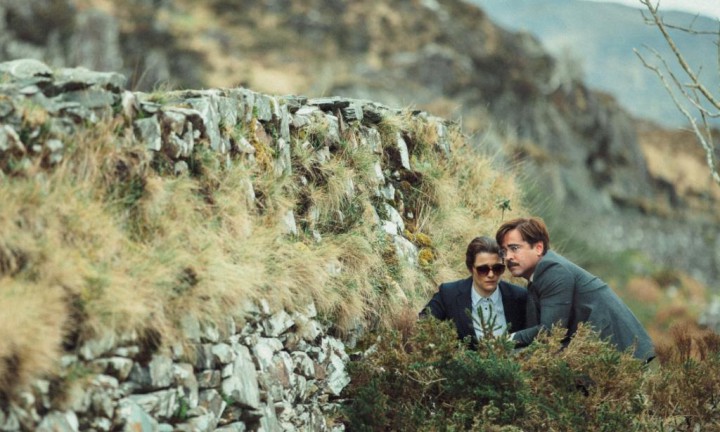

Lanthimos is one of my favorite working filmmakers, apparently this film is going to be on Criterion this fall.
Have you seen his pre-Dogtooth films?
No, what are they like?
I don’t know. You must have really fallen for Alps, which I didn’t like nearly as much as Dogtooth. His latest is the best of the three.
I agree Lobster is his best, Alps was fine, but I didn’t like it as good as Doogtooth.
But between the three he’s one of your favorite working filmmakers? That just doesn’t seem like much of a sample size…and that’s from someone who very much likes two of his three most recent features.
I mostly admire or appreciate this one. I thought Dogtooth was overhyped, trite, and painfully obvious. I have seen no others and that’s okay by me.
Best picture of 2016 so far (Miles, Ahead being in second now) A great film should be like a dream. Confusing, scary, fun, funny, wonderful, intelligent, and dead pan. I love this film and will annoy all my friends by telling them everyday they must see this. Bravo for the ending! My kind of ending.
Best picture of 2016 so far
Dear God, no.
Dear Peter Gabriel, yes.
I must admit, i have been busy with theatre performances and have to catch up on good movies but… what could be better than THE LOBSTER? If you say THE NICE GUYS..Im okay with that.
No, just no. Better than it — High-Rise for one. Love & Friendship for another. And, yeah, I’d rather see The Nice Guys.
Looking forward to HIGH RISE. I think I will make it my debut at the Grail Cinema.
Are the reviews true?? It is “Snowpiercer in a skyscraper”.
“High Rise” and “The Lobster” are on my must-see list, and I liked both “Nice Guys” and ” Love & Friendship”, but I still can’t see any of them knocking “Sing Street” off the top of my list so far.
Are what reviews of High-Rise true? My review certainly is — for me. And it’s only kind of like Snowpiercer in some elements.
Yes, Sing Street and, for that matter, Miles Ahead are better than The Lobster. So is Marguerite which opens this week.
If you want to see High-Rise, I’d suggest doing it before Friday.
Hotel hallways have not been this creepy since THE SHINING.
I started this film on a high note but found that its’ rate of return, both in enjoyment and enlightenment, diminished as the film’s length increased.
Also, I kinda get the message int he first half, the part that takes place in the hotel, about how “society” (religion, class, peer pressure) effects how we see ourselves, how we want to be seen, and what relationships are acceptable.
I don’t quite understand what the message is in the second half, the “loners in the woods”. Yeah, I get the freedom part, but what is he trying to say when he makes the leader and the rules of the loners so destructive to joy (no flirting, no commitment, threatening death or disabling those who disobey or attempt to leave). I feel like I have lived most of my adult life “outside of the hotel and city” and cannot think of any societal trends that are applicable.
Can somebody man-splain this to moi?
I loathe the “m” word and will attempt not to sound patronizing. My interpretation of the second half is that singles are just as militant about preserving their way of life as couples are. It brought to mind personal experiences of how a group of single friends aren’t always accepting of one of them starting to date someone since it can’t help but disrupt the present dynamic. I think Lanthimos is being similarly extreme in his satire of both groups and that both halves are rich and rewarding.
Or it might just be downbeat smart-assery for its own sake. Having seen Dogtooth I cannot rule that out.
I’ll buy that for a dollar!
Thanks,